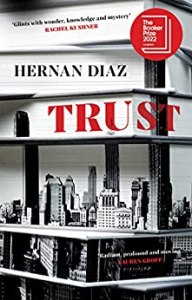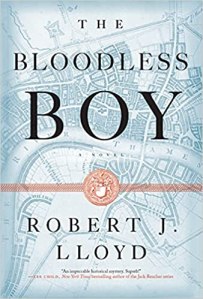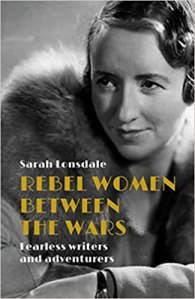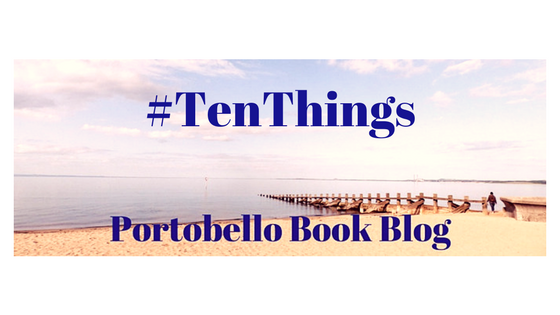Published by Picador
Publication date – 4 August 2022
Highly recommended.
I often say books can create atmospheres, an indescribable something that pulls the reader in. It could be the location where the story is set, all of the characters or one in particular. It could be a turn of phrase, a writing style, all of these or none. But it is that atmosphere that draws the reader in and keeps them in the world created within the pages until the end.
The legendary Wall Street tycoon whose immense wealth gives him the power to do almost anything.
The second-generation Italian immigrant tasked with recording his life story.
The reclusive, aristocratic wife.
And the writer who observes them from afar.
I loved every page of this multi-layered look into money and power and 1920s high society. I loved the layering of fictional facts and fiction, the stories within stories and the different methods of telling them. Trust has been longlisted for the 2022 Booker Prize and so will no doubt garner lots of reviews and attention. There will be both debits and credits in the opinion stakes. I’d suggest calculating for yourself before deciding if you trust those reviews and want to read it. On balance I’d say it would be a good investment.
It’s hard to say why I enjoyed Trust so much. I don’t think I’d be able to pinpoint why and would just have say because I did. Sometimes that’s enough.
The book is broken down into four parts. The first is Bonds, a novel by Harold Vanner, which tells the story of 1920s power couple Benjamin and Helen Rask. Next comes the unpublished auto-biography of Andrew Bevel, whose life bares an uncanny similarity to the Rasks. After that is A Memoir, Remembered, a memoir of Andrew Bevel’s secretary Ida and finally comes Futures, the private diary of Bevel’s wife, Mildred.
Source – review copy
There is lots of discussion about the financial markets, short selling and the like, which I have to admit I don’t have the first clue about. But that doesn’t really matter. The knowledge, imparted as it is by way of a slightly condescending Bevel, is perhaps made to still have some mystery around it to ensure Bevel’s reputation as a money magician is maintained. There is of course the dual references these monetary terms relate to. The title refers not just to trusts in the meaning of monetary assets but also the trust that the characters place in others, that the author places in the reader and that the reader puts into the story. That trust is handled like an asset, to hopefully grow. Bonds doesn’t only refer to Vanner’s novel. It ties the Rasks together, ties the story together and refers to the bond the audience has with the worlds created by the author. And there is of course Futures. It is no coincidence that Futures is the end part of the novel and that it looks back at the past.
Andrew and Mildred Rask have it all. Money, connections and the seemingly magic touch when it comes to playing the stock market. But there are more sides to the story than one and each of them have to be told.
There will be cleverer minds than mine who will review this and dwell on the author’s commentary about power, of the blurring of fact and fiction and the quiet corruption money and power can bring. There is the contrast between money and power and poverty and powerlessness, mostly portrayed in Irene’s memoir. There, her anarchist’s father’s struggles to make change are in stark contrast to Andrew Bevel’s quiet machinations to change financial policy and control the markets, for controlling them seemingly controls the wealth of the country
In a city devoted to making money and making stories like no other, where wealth means power, who gets to tell the truth? And to rise to the top of a glittering, destructive world, what – and who – do you have to sacrifice?
Each part has it’s own unique voice, whilst fitting seamlessly together, something that could have easily not worked. The story reveals itself much like a set of Matryoshka dolls in reverse, a not quite identical story becoming larger and clearer as each part is read.








